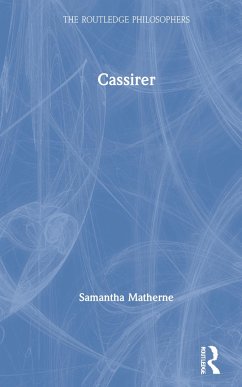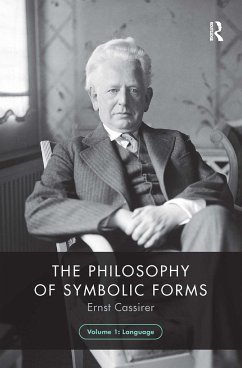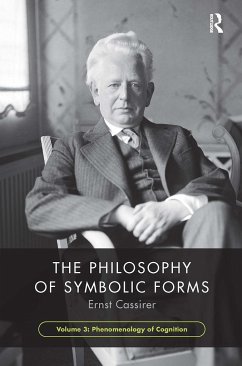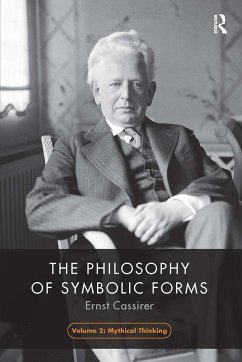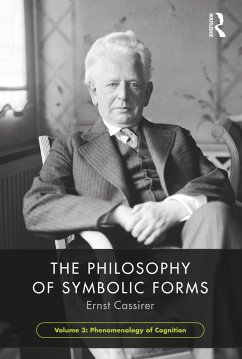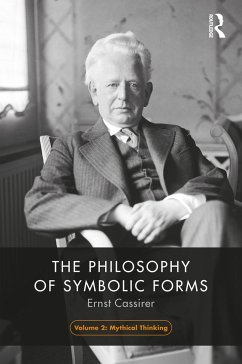
Cassirer
Versandkostenfrei!
Versandfertig in 6-10 Tagen
25,99 €
inkl. MwSt.
Weitere Ausgaben:

PAYBACK Punkte
13 °P sammeln!
Ernst Cassirer (1874-1945) occupies a unique place in 20th-century philosophy. His view that human beings are not rational but symbolic animals and his famous dispute with Martin Heidegger at Davos in 1929 are compelling alternatives to the deadlock between 'analytic' and 'continental' approaches to philosophy. An astonishing polymath, Cassirer's work pays equal attention to mathematics and natural science but also art, language, myth, religion, technology, and history. However, until now the importance of his work has largely been overlooked.In this outstanding introduction Samantha Matherne ...
Ernst Cassirer (1874-1945) occupies a unique place in 20th-century philosophy. His view that human beings are not rational but symbolic animals and his famous dispute with Martin Heidegger at Davos in 1929 are compelling alternatives to the deadlock between 'analytic' and 'continental' approaches to philosophy. An astonishing polymath, Cassirer's work pays equal attention to mathematics and natural science but also art, language, myth, religion, technology, and history. However, until now the importance of his work has largely been overlooked.
In this outstanding introduction Samantha Matherne examines and assesses the full span of Cassirer's work. Beginning with an overview of his life and works she covers the following important topics:
Cassirer's neo-Kantian backgroundPhilosophy of mathematics and natural science, including Cassirer's first systematic work, Substance and Function, and subsequent works, like Einstein's Theory of RelativityThe problem of culture and the ground-breaking The Philosophy of Symbolic FormsCassirer's ethical and political thought and his diagnosis of fascism in The Myth of the StateCassirer's influence and legacy.
Including chapter summaries, suggestions for further reading, and a glossary of terms, this is an ideal introduction to Cassirer's thought for anyone coming to his work for the first time. It is essential reading for students in philosophy as well as related disciplines such as intellectual history, art history, politics, and literature.
In this outstanding introduction Samantha Matherne examines and assesses the full span of Cassirer's work. Beginning with an overview of his life and works she covers the following important topics:
Cassirer's neo-Kantian backgroundPhilosophy of mathematics and natural science, including Cassirer's first systematic work, Substance and Function, and subsequent works, like Einstein's Theory of RelativityThe problem of culture and the ground-breaking The Philosophy of Symbolic FormsCassirer's ethical and political thought and his diagnosis of fascism in The Myth of the StateCassirer's influence and legacy.
Including chapter summaries, suggestions for further reading, and a glossary of terms, this is an ideal introduction to Cassirer's thought for anyone coming to his work for the first time. It is essential reading for students in philosophy as well as related disciplines such as intellectual history, art history, politics, and literature.





